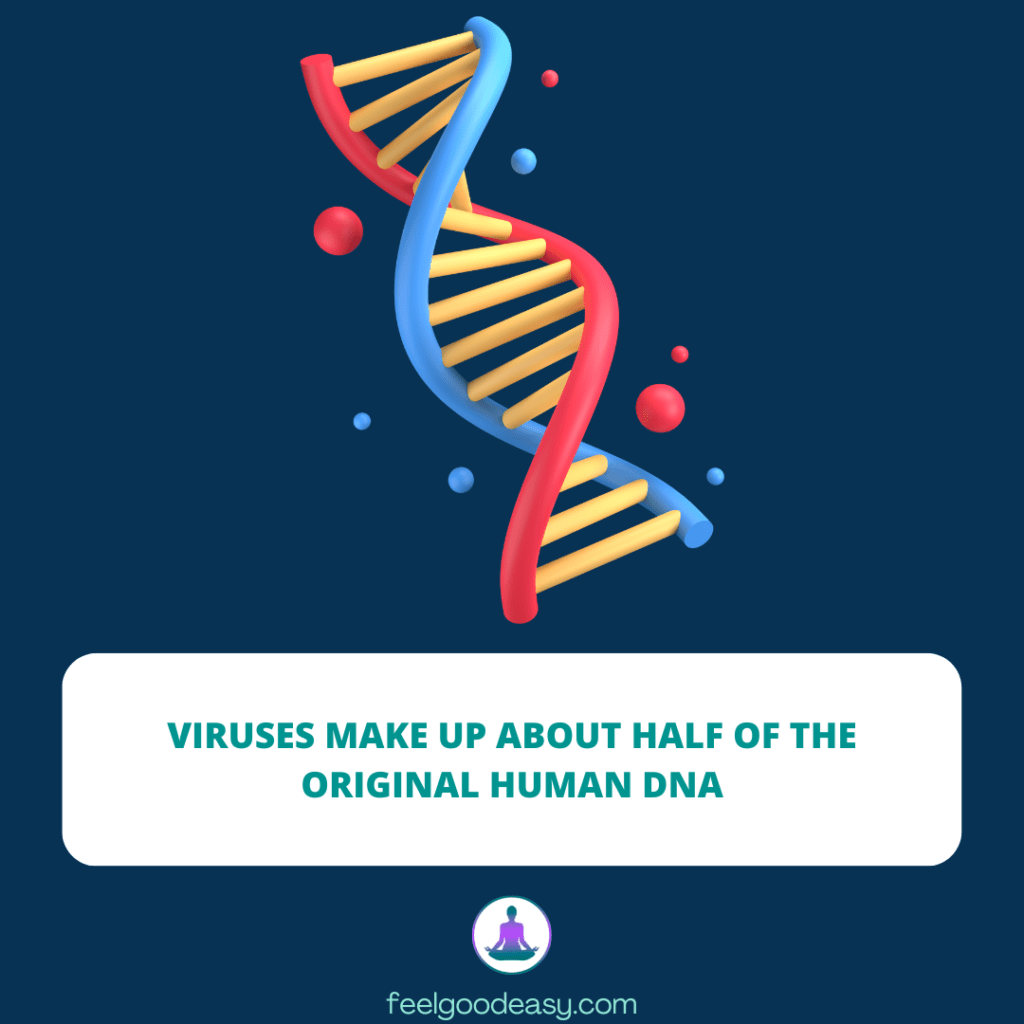
Viruses are often thought of as harmful and disease-causing agents, but did you know that they also play a significant role in human evolution? In fact, it has been discovered that roughly half of the original human DNA is made up of viruses that have infiltrated and integrated into our genetic code over millions of years. Viral remnants make up 8 percent of the human genome, and a new study finds that these sequences are still active in healthy people.
This may come as a surprise to many people, as we often associate viruses with sickness and disease. However, it is important to note that not all viruses are harmful. In fact, many viruses are harmless or even beneficial to humans and other organisms. Viruses have been found to play important roles in the development of the immune system, as well as in regulating gene expression and cellular function.
The process by which viruses become integrated into our DNA is known as endogenization. This occurs when a virus infects a germ cell, such as a sperm or egg cell, and becomes incorporated into the genetic material of the host organism. Over time, these viral sequences can become fixed in the population and passed down through generations.

Scientists believe that endogenization has been occurring for millions of years and that the majority of the viral sequences in our DNA are remnants of ancient infections. Some of these viruses may have been harmful at the time of infection, but over time their genetic material has become integrated and repurposed for the benefit of the host organism.
One example of a virus that has become integrated into our DNA is the human endogenous retrovirus (HERV). HERVs are remnants of retroviruses, which are viruses that use RNA as their genetic material instead of DNA. Over time, HERVs have become fixed in the human genome and are now present in all humans.
Recent studies have shown that HERVs and other viral sequences in our DNA may play important roles in human health and disease. For example, researchers have found that HERVs are involved in the regulation of gene expression and may play a role in the development of certain cancers and autoimmune diseases.
In conclusion, viruses make up a significant portion of the original human DNA, and their integration has played an important role in human evolution. While many viruses are harmful, it is important to remember that not all viruses are disease-causing agents. Understanding the role of viruses in our DNA may provide important insights into human health and disease and could lead to new treatments and therapies in the future.






0 Comments